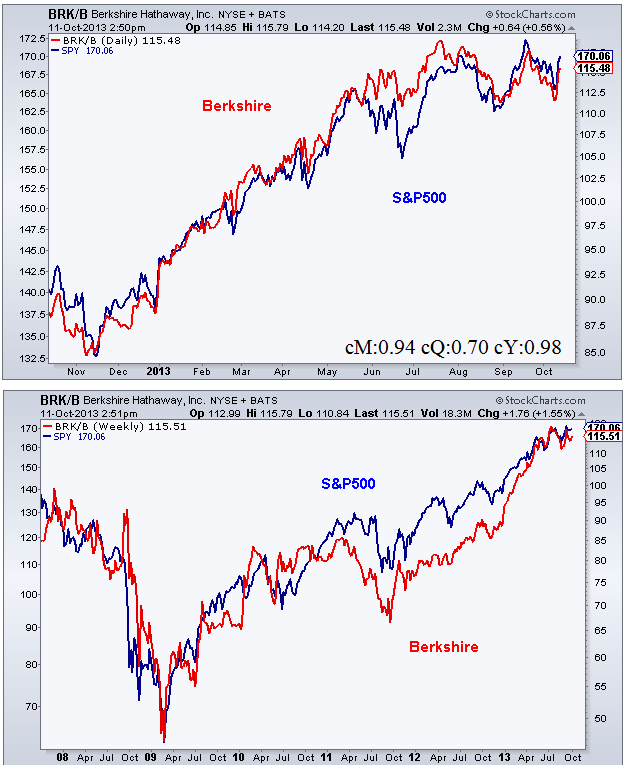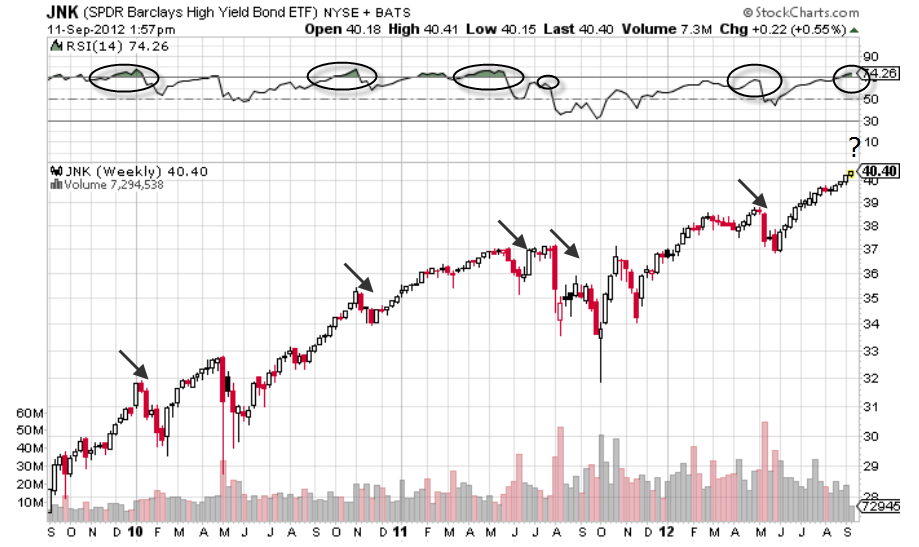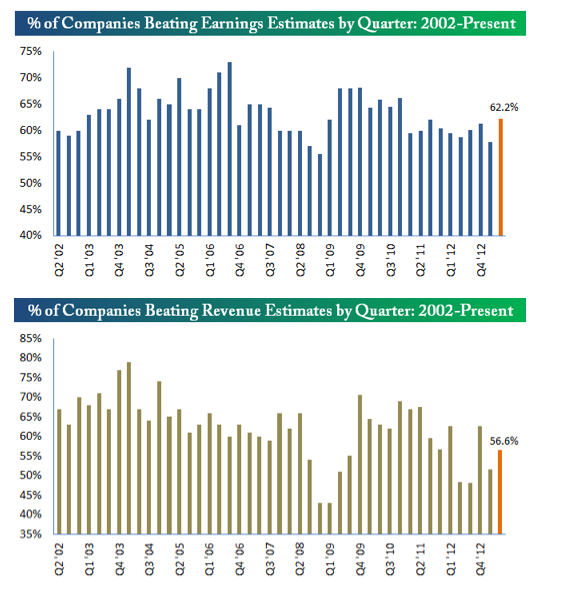J.C. Parets made waves this week by pointing out that shares of Warren Buffett’s Berkshire Hathaway (BRK.A) have moved virtually in lockstep with the S&P 500 index over the past year.
The technical analyst wondered why investors would even want to own Berkshire, since the shares have a 0.98 correlation with the S&P 500:
As smart and brilliant as Warren Buffett might be (I have no idea, I’ve never met the guy), he’s a closet indexer. The truth is, I was surprised when I ran the numbers. I couldn’t believe how irrelevant that stock has now become.
Parets says investors would be better off simply buying low-cost index funds and ETFs designed to track the S&P 500 index.
Of course, Warren Buffett isn’t a mutual-fund manager. Berkshire Hathaway is a holding company with a diverse collection of businesses.
Motley Fool contributor Jordan Wathen takes exception to calling Buffett, one of the best investors in a history, a closet indexer:
When I think about Berkshire Hathaway as a business, my last thought is how it correlates to the market at large. Instead, I think of a company that is managed by investing legends who know how to intelligently allocate capital for the best returns … Saying that investors are just closet indexing by buying Berkshire Hathaway is a crazy way to look at one of the best-run conglomerates in the world.
Also, Buffett’s long-term track record at Berkshire speaks for itself, even if the stock has shown a high correlation with the S&P 500 over the past year. Since 1965, the per-share book value of Berkshire has averaged annual compounded gains of 19.7%, versus 9.4% for the S&P 500 with dividends included.
Yet not even Warren Buffett is immune to charges of closet indexing. This vigilance for closet indexing is probably a good thing for investors, since active managers are paid to beat the index, not simply follow it. If investors wanted index returns, they would simply buy passively managed funds hitched to benchmarks like the S&P 500 and Dow Jones Industrial Average.
Oftentimes closet index funds start out as outperforming active funds that lapse into hugging the benchmark after assets flood in. The giant Fidelity Magellan mutual fund has been labeled a closet index fund over the years following the departure of renowned manager Peter Lynch in 1990. Swelling assets can hamper a portfolio manager’s ability stay nimble and find enough promising stocks to drive meaningful alpha.
Therefore, as outlined in Covestor’s investment philosophy, emerging managers with smaller asset bases are potentially better-positioned to provide outperformance. In fact, closet index funds with holdings very similar to the benchmark tend to underperform, mostly due to higher costs, according to academic research. Also, managers who take a more active approach tend to have a better chance of beating the index on a risk-adjusted basis.

Charts: All Star Charts
Photo credit: trackrecord
DISCLAIMER: All opinions included in this material are as of October 17, 2013 and are subject to change. Investment involves risk. Investors cannot invest directly in an index. Indexes have no fees. Past performance is no guarantee of future results.




